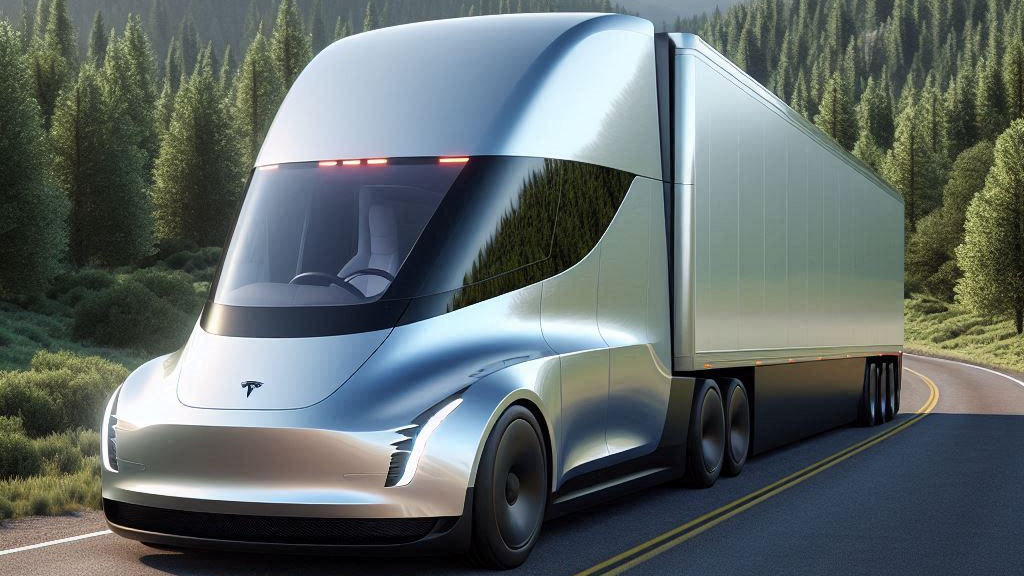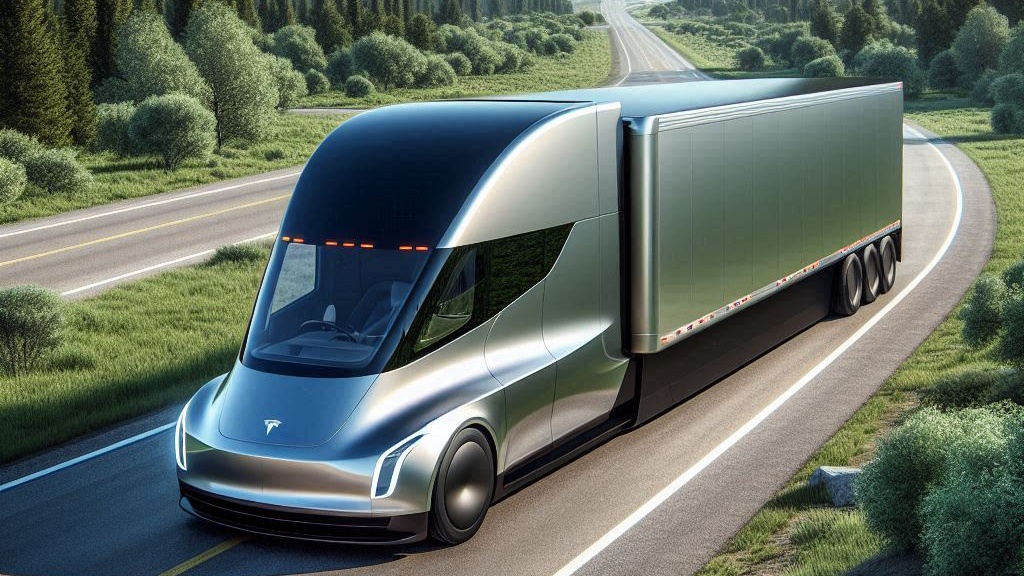Tesla is known for pushing the boundaries of innovation, and the latest announcements have set the stage for some truly groundbreaking developments in the world of electric vehicles (EVs). Among the most exciting revelations are the upcoming Tesla Model 2 and the Tesla Semi Gen 2, both of which promise to revolutionize their respective industries.
In this post, we’ll take a deep dive into the Tesla Model 2 and Tesla Semi Gen 2, exploring the latest leaks, production updates, and key features that make them stand out.
Tesla Model 2: What’s the Latest?
Recent leaks and announcements from Elon Musk and Tesla executives have confirmed that the Tesla Model 2 is officially ready to launch in Quarter 2 of this year. This news has excited Tesla fans worldwide, who have been eagerly awaiting the release of Tesla’s affordable electric car. The most shocking part? The Model 2 will have a starting price of under $25,000, making it one of the most affordable electric cars in the market.
Tesla Model 2 Prototype Spotted
A camouflaged Model 2 prototype was recently spotted near Tesla Texas, sparking even more excitement about the car’s imminent release. Additionally, evidence suggests that Tesla is ramping up production for the Model 2, incorporating revolutionary manufacturing methods at its three largest factories: Giga Texas, Giga Mexico, and Giga Shanghai.
Is the Model 2 Worth the Wait?
The big question on everyone’s mind is: How real are the high expectations for the Tesla Model 2? Will it live up to the hype and deliver the performance and design that fans have been waiting for? In this blog post, we’ll explore what we know so far and give our take on whether this car is truly worthy of the massive anticipation.
Tesla Semi Gen 2: A Game-Changing Electric Truck
While the Model 2 has garnered significant attention, Tesla’s focus isn’t just on affordable electric cars. The company is also making major strides in the electric truck market. The Tesla Semi Gen 2 is expected to launch in 2025 and has some huge upgrades that are bound to change the game for the freight industry.

The Revolutionary Features of the Tesla Semi Gen 2
Elon Musk and his team have spent nearly three years refining the Tesla Semi Gen 2, and the results are impressive. One of the most notable upgrades is the increase in maximum range. The Tesla Semi Gen 2 can now travel 500 miles on a single charge, a significant improvement over its predecessor, which could only manage around 300 miles under real-world conditions.
Breakthrough Charging Technology
Another game-changing feature of the Tesla Semi Gen 2 is the new Mega Charger 2.0. This cutting-edge charging system can recharge the truck up to 70% in just 20 minutes, minimizing downtime and making long-haul trucking more efficient than ever. Fleet operators will no longer have to worry about extended charging stops, making electric trucks a more viable option for commercial transportation.
Powertrain and Performance
The Tesla Semi Gen 2 also comes equipped with a four-motor drivetrain, an upgrade from the previous model’s three-motor setup. This gives the truck even more torque and acceleration, enabling it to accelerate from 0 to 60 mph in just 20 seconds while fully loaded with 880,000 lbs. This puts it on par with the performance of some of the fastest cars in the world, including the Tesla Model S Plaid.
How Tesla is Revolutionizing the Trucking Industry
Tesla’s entry into the electric trucking industry isn’t just about creating another electric vehicle—it’s about revolutionizing the entire trucking industry. The company’s innovative approach to production, performance, and sustainability is setting new benchmarks for what’s possible in the world of freight transportation.
Efficient Manufacturing at Scale
Tesla’s manufacturing process is becoming more efficient with each iteration of its vehicles. For the Semi Gen 2, Tesla has ramped up production capacity at its Gigafactories in Nevada and beyond, ensuring that the electric big rigs are built at scale. By 2025, Tesla plans to produce up to 50,000 units per year of the Tesla Semi, with a production cycle as fast as 10 to 15 minutes. This ambitious timeline will help the company secure its place in the commercial trucking market.
Aerodynamics and Efficiency: A Perfect Match
Tesla’s focus on aerodynamics is another reason why the Semi is a game-changer. The truck’s design has a drag coefficient lower than that of a Bugatti Chiron—a remarkable feat for a heavy-duty vehicle. This sleek design results in a 20% reduction in drag, which translates into over 10% less fuel consumption or the equivalent of saving 5,000 liters of fuel per year. This aerodynamic improvement is a key factor in achieving the 500-mile range that makes the Semi Gen 2 so competitive.

Tesla Semi’s Potential to Transform the Market
With increasing global demand for sustainable solutions in freight transportation, the Tesla Semi Gen 2 is positioned to become a leader in the heavy-duty truck market. As of now, less than 5% of Class 8 trucks are electric, compared to 14% EV penetration in passenger vehicles. Tesla’s ability to scale production and deliver a highly efficient and affordable electric truck could help change this, with the company aiming to capture a significant share of the market.
Early Adoption and Orders Rolling In
The momentum for the Tesla Semi is already building. Major companies like PepsiCo, Walmart, Anheuser-Busch, and UPS have already placed orders for Tesla Semis, and Pride Group Enterprises has committed to buying up to 500 units. These early adopters are setting the stage for widespread adoption of electric trucks in the logistics sector, validating Tesla’s push into the commercial market.
The Economic Impact of the Tesla Semi
The financial case for adopting the Tesla Semi Gen 2 is compelling. With a price of around $180,000 for the 500-mile version, the Tesla Semi is significantly cheaper than its diesel competitors, which typically cost around $230,000. But the real savings come from the lower operating costs. The Tesla Semi can save 25 cents per mile compared to a diesel truck, which adds up over the truck’s lifetime.
Cost Savings: A Major Selling Point
A typical diesel truck would cost around $151 per mile to operate on a 100-mile route, while the Tesla Semi only costs $1.26 per mile. This massive difference in operating costs will help fleet operators save millions of dollars over time. The fact that Tesla is also offering the Semi at competitive prices for the commercial market shows that they are committed to speeding up the adoption of electric trucks.
The Road Ahead: What’s Next for Tesla in 2025 and Beyond?
As Tesla continues to ramp up production of the Model 2 and Semi Gen 2, the company is gearing up for a breakthrough year in 2025. With major milestones on the horizon, including the start of mass production and delivery of orders, Tesla is poised to make a huge impact on the EV and trucking industries.
A Long-Term Vision for Electric Vehicles
Tesla’s commitment to the electric future is unwavering, and the Model 2 and Semi Gen 2 are just the beginning. By focusing on both consumer and commercial markets, Tesla is strategically positioning itself as a leader in sustainability and innovation. The company’s focus on vertical integration, revolutionary manufacturing methods, and cutting-edge technology will continue to drive its success in the years to come.
Will Tesla Become the Savior of the Trucking Industry?
As the electric trucking market grows, Tesla’s Semi Gen 2 may very well become the savior of the industry. With its superior performance, low operating costs, and unmatched efficiency, it’s poised to disrupt the market. For fleet operators looking to lower costs and meet sustainability goals, the Tesla Semi could be the ultimate solution.
Conclusion: Tesla’s Bold Strategy for 2025 and Beyond
The Tesla Model 2 and Tesla Semi Gen 2 are set to dominate their respective markets in 2025. As Elon Musk and his team continue to innovate, Tesla’s future looks incredibly bright. With affordable electric cars and game-changing electric trucks, Tesla is positioned to lead the charge toward a sustainable future.
Stay tuned as we continue to follow the latest developments in Tesla’s groundbreaking technologies and their impact on the EV revolution.
FAQs
The Tesla Model 2 is an affordable electric car from Tesla, with a starting price under $25,000. It’s set to launch in Quarter 2 of 2025, and prototypes have already been spotted near Tesla’s Texas facilities. The Model 2 is expected to revolutionize the electric vehicle market by offering an affordable alternative to traditional gas-powered cars.
The Tesla Semi Gen 2 comes with impressive upgrades, including a 500-mile range, faster charging times (up to 70% in 20 minutes), and improved aerodynamics. The new version features a drag coefficient lower than some sports cars, resulting in enhanced energy efficiency. Additionally, the regenerative braking system recovers up to 98% of kinetic energy, further improving the truck’s efficiency.
The Tesla Semi will start at around $180,000 for the 500-mile version. Despite its higher initial cost compared to traditional diesel trucks (typically priced around $230,000), the Tesla Semi offers substantial savings on energy and maintenance costs, making it a cost-effective choice in the long run.
Tesla plans to ramp up production of the Tesla Semi to 10,000 units per year by 2025, with the goal of producing 50,000 units annually by 2026. This increased production is part of Tesla’s broader strategy to dominate the electric truck market.
The Tesla Semi Gen 2 offers a maximum range of 500 miles on a single charge, which is a significant improvement over earlier prototypes. This extended range makes the truck suitable for long-haul routes, reducing the need for frequent charging during cross-country shipments.
Commercial fleet operators are reaping the benefits of the Tesla Semi through significant savings in fuel and maintenance costs. The truck’s low energy consumption, fast charging capabilities, and reliable performance make it a cost-effective solution for logistics companies. Early adopters like PepsiCo and Pride Group Enterprises have already made significant orders, highlighting the growing demand for electric trucks in the logistics industry.
Read More:

